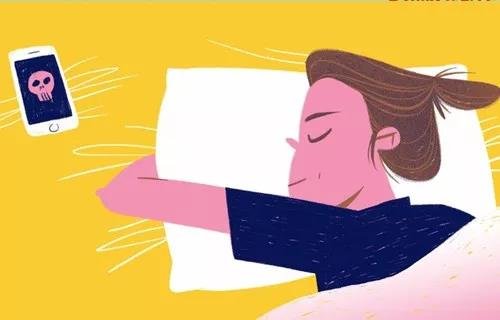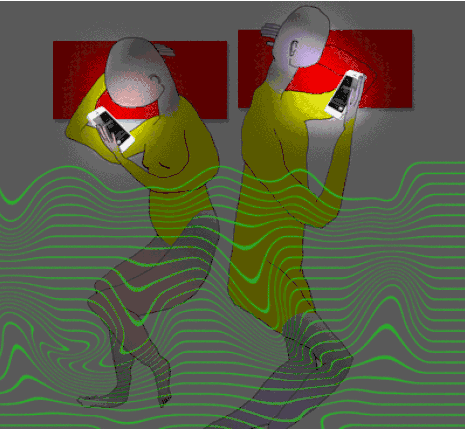Without Wi-Fi, I just feel under the weather!!

Whether it’s waiting up for a response to an unanswered text, replying to work emails long after the end of the business day, or aimlessly scrolling through Instagram, even the most disciplined among us can be found at least occasionally—if not regularly—tucked into bed with our smartphones tightly in hand or nestled under our pillows.

In a Gallup survey, 63% of respondents admitted to keeping their smartphones close by while sleeping. But aside from the generalized guilt that comes with procrastinating before bedtime, is it actually dangerous to sleep with your smartphone?
We turned to several experts in fields like chemistry, sociology, and psychologyto identify and explain the risks associated with sharing your bed with your electronic devices.

FOR ELECTRONIC DEVICES LIKE LAPTOPS, phones, anything with a LED or LCD display, the problem is that they produce a large amount of artificial blue light. Our natural cue to what time of day it is, primarily to know when morning is, is blue light. By exposing ourselves to large amounts of blue light late at night, we are giving our bodies a cue that it’s time actually to wake up instead of go to sleep. This can lead to defects in our circadian rhythm, and it’s been shown that when we have our biological clock out of phase with the natural day-night cycle outside, that can lead to increases in the rates of diabetes, cancer, heart disease, and even depression.
Mariana Figueiro, Ph.D.Professor, Lighting Research Center Light and Health Program Director, Rensselaer Polytechnic Institute
IT DEPENDS ON THE KIND OF DEVICE and how long people are being exposed to it, but there’s clearly a potential for suppressing melatonin in the evening, which is the hormone we start producing a couple of hours prior to bedtime. Melatonin is essentially a nighttime or darkness signal, telling us it’s time to go to bed. So, if you delay the onset of that signal in the evening, by being exposed to too much light coming from those devices, you may be delaying sleep times. Then, if you have a fixed wake up time and can’t sleep in to compensate, you are experiencing sleep deprivation. Even if you filter the light of the display or somehow protect yourself from it, it may be just as bad, because you’re still depriving yourself of sleep by staying awake to use the device.
Sleep deprivation has been linked to a series of things—it’s been shown that after five consecutive days of five hours of sleep instead of eight hours, people can become pre-diabetic or become hungrier. In the short-term, you become sleepier during the day, and you may reduce daytime performance. And then long-term, you may have more serious consequences, such as increased risk for obesity, diabetes, cardiovascular disease, and even increased risks of cancer. I’m not saying that these self-luminous displays cause cancer—that would be a big statement. But you want to minimize disruption of circadian rhythms and the curtailment of sleep as much as possible.

Mary A. Carskadon, Ph.D.Professor of Psychiatry & Human Behavior, Brown University
SLEEPING WITH THESE TYPES OF DEVICES IS NOT TOO WISE, primarily because of their association with disrupted sleep. From TVs to computers to tablets and smartphones, young children’s sleep seems to be very compromised. Whether these devices disrupt sleep because of noise, light, social interactions (or the promise of them), such devices take a toll. The downsides of insufficient and disrupted sleep are many, including learning and memory deficits, cognitive impairment, metabolic difficulties, depressed mood, disrupted immune function, and excessive fatigue—to name a few.

haohaoxuexi,天天向上
Do you have more information about this? I would like to read into it.